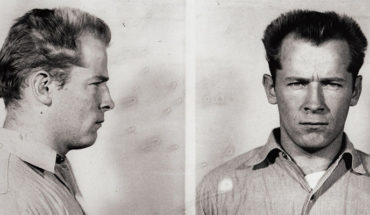BUENOS AIRES (AP) — A thick roasted steak on the outside, and juicy and slightly pink on the inside, is a must-have delicacy for any foreigner visiting Argentina.But in the country of meat it seems that more and more Argentinians consider this delight a sacrilege. A private study found that six out of 10 people are willing to stop eating beef, a figure that caught the attention of farmers facing a drop in consumption due to the economic crisis and a boom in vegan and vegetarian movements.
These generations “have grown up with all the discussion about abortion in Congress, inclusion, gender equality, (fighting) gender-based violence. These collective issues are beginning to play more weight in food purchasing decisions,” Adrián Bifaretti, head of the internal promotion department of the Institute for the Promotion of Beef (IPCV) and author of the aforementioned study told The Associated Press. based on online survey of 1,100 cases. The survey, which is done at a bi-monthly frequency, has a margin of error of three percentage points. HELP US Click the Google News star and follow usThe fight between ranchers and vegans exploded weeks ago with the emergence of a group of activists against animal abuse at the traditional Rural Society exhibition in Buenos Aires. Some ruralists, in typical gaucho clothing, ran the protesters with horses and whips. Argentina historically led the per capita consumption of meat worldwide with its neighbor Uruguay. But it is now about 50 kilograms a year, according to the July report of the Chamber of The Meat and Derivatives Industry and Trade of the Argentine Republic (CICCRA), the lowest level in history.” The concern for cruelty and slaughter is, it’s going to be felt. What is coming in Argentina is a form of expression of these groups similar to what is given in other parts of the world. This is beginning to be a challenge,” Bifaretti acknowledged.Tended on grasslands, Melisa Wolf caresses the snout of Apollo, a calf of black fur a few weeks old and the size of a Labrador dog. Goats, sheep, chickens and ducks that live together in the “Wild Sanctuary” run around it, located on two hectares an hour from the Argentine capital.” In a sanctuary the animals live their whole lives,” explained the 28-year-old vegan activist, who calls by name each of the 300 animals she houses except the hens “because they are very equal.” The dynamics of the place seem inspired by the film “Babe, the Brave Pig”, which takes place on an Australian farm where animals socialize and come to help the little protagonist become a sheep herder. While a somewhat overweight sheep, responding to the name Bruno, is approaching the intruders interviewing Wolf suspiciously, the Iowa goat seeks to draw human attention with its horns.” A person who is in contact with a dog or cat knows how he feels, knows that he likes to be pampered, knows that he is hungry, thirsty, cold or what hurts him when he gets hurt,” she mused. “But with these animals like that bigger or not so close to them they don’t know or don’t want to realize that they are feeling beings.” Veganism, which emerged in London during World War II, is based on a free diet of animal products, unlike vegetarians who accept milk or egg intake. Vegans also reject any form of animal exploitation, whether as a workforce, for clothing, cosmetics, transport, sport or scientific experimentation and does not believe in hierarchies between animals and humans.” One has the meat on the plate and does not wonder how it came… I liked that food bled and I did not imagine that blood was a fluid of an animal muscle,” Lobo recalled.It still didn’t dawn but the white uniforms that identify the refrigerator workers in the west of the capital are already stained with blood after you are already stained with blood after you rubbing the res that came from nearby slaughterhouses. Mataderos is the neighborhood of the butchers that supply the cuts for the traditional roast that is consumed in restaurants and homes in Buenos Aires. As old as the foundation of the country, roasting is the excuse for meeting families and friends and does not distinguish social classes or age.” Thank God in Argentina and in these neighborhoods the weekend roast is consumed a lot, but in the future capable of getting a little complicated”, admitted Diego Salvo, in charge of “The best butchery”, about the new food currents. So imbued is the beef in Argentine culture, that local vegan chefs require a lot of ingenuity to adapt the typical dishes to a version free of animal cruelty. In “La Reverde”, the first vegan grill in Buenos Aires, the specialty of the house resembles in appearance a chorizo steak, a typical Argentine cut of boneless meat that is cooked on the grill. It is actually a seitan steak, a wheat gluten-based preparation and other ingredients such as beet puree and species that help give it a beef-like tone.” I’m not fascinated by eating animals. It makes me feel, it disgusts me, it’s like cutting off a part of your arm, cutting it into pieces and starting to put them in your mouth,” said Melissa Aruj, 25, after having a seitan steak with chips.” Without a doubt, I reckon that from here 10 or 15 years a lot (of the population) is going to be vegetarian, I do not know if vegan. It’s going to go slowly,” he ventured. For many activists, veganism is not limited to the intake of food produced without animal cruelty. It demands a greater, military commitment for the cause. This is understood by the young people who make up the Voicot grouping for animal liberation who on a recent Saturday opted in front of access to an abattoir for a vigil in repudiation of the slaughter of cows.” It makes me very sad, I can’t get the words to ask the animals for forgiveness because they have a miserable life,” said Jasmine Romero, who wore a black T-shirt with the phrase “We are the species in danger of destroying everything,” he said with tears in his eyes. On the other side, the animals did not seem disturbed by their impending fate.” You’re not talking about killing an animal for sport, that animal becomes food… In all the history of mankind has been so,” Bifaretti refuted.





